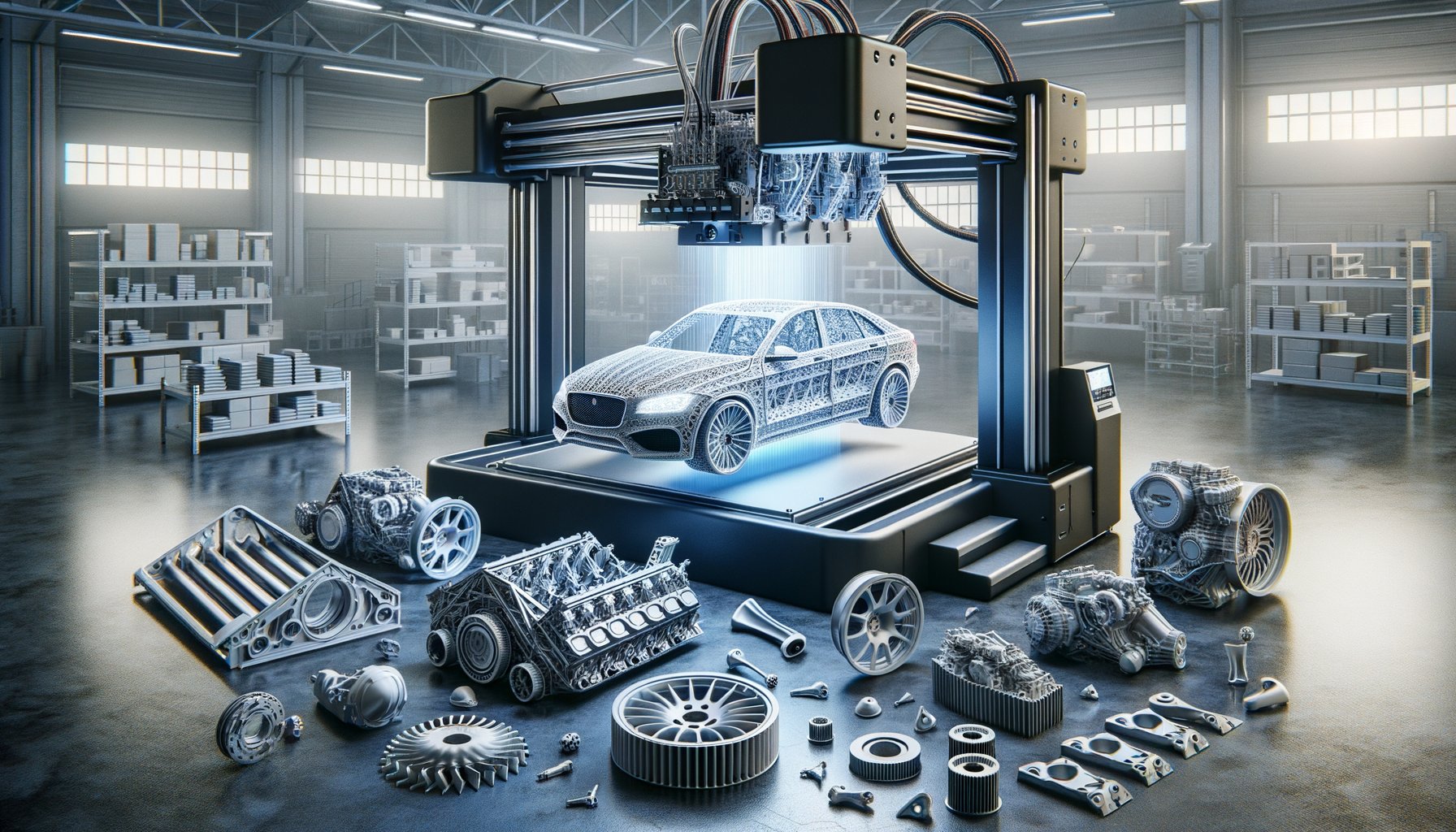Physical Address
304 North Cardinal St.
Dorchester Center, MA 02124
Physical Address
304 North Cardinal St.
Dorchester Center, MA 02124

The advent of 3D printing technology has brought a seismic shift in various industries, and the automotive sector is no exception. This groundbreaking technology, also known as additive manufacturing, is revolutionising car manufacturing by offering unprecedented levels of precision, efficiency, and flexibility. From prototyping to parts production, 3D printing is reshaping the automotive landscape.
At its core, 3D printing involves creating three-dimensional objects from a digital file. The process uses an additive procedure where successive layers of material are laid down until the object is created. Each layer can be seen as a thinly sliced cross-section of the eventual object.
There are several types of 3D printing technologies available today like Stereolithography (SLA), Fused Deposition Modelling (FDM), Selective Laser Sintering (SLS), and more. However, they all follow the same basic principle – converting digital models into solid three-dimensional physical entities by adding material layer by layer.
The applications of 3D printing in car manufacturing are manifold and have opened new vistas for innovation and design in the industry.
In the past, developing a prototype was time-consuming and costly. With 3D printing, manufacturers can now create prototypes quickly and affordably. This not only accelerates product development but also allows for multiple iterations without significant cost implications. For instance, Ford Motor Company uses 3D printed parts to test form, fit and function before committing to expensive tooling.
The potential for customisation with 3D printing is immense. Manufacturers can offer customers the option to customise their vehicle parts, such as dashboards or gear knobs. This level of personalisation was previously unattainable due to the constraints of mass production.
3D printing allows manufacturers to create complex geometries and structures that were previously impossible. This capability is particularly useful in lightweighting – creating lighter vehicles without compromising strength or performance. Lighter cars are more fuel-efficient, reducing CO2 emissions and contributing to sustainability efforts.
Moreover, 3D printing promotes sustainable manufacturing practices by reducing waste. Traditional manufacturing methods are subtractive, meaning they cut away excess material, which often goes to waste. In contrast, 3D printing is an additive process where material is only used where needed.
Several automotive companies have already started harnessing the power of 3D printing.
In 2018, BMW announced it had printed over one million parts since its first introduction of the technology in 2010. The company uses 3D printing for various applications like prototyping and producing parts for its Rolls-Royce Motor Cars division.
Bugatti uses 3D printing to manufacture its brake calipers – a world-first in the automotive industry. These calipers are made from titanium and are significantly lighter than traditional ones, improving overall vehicle performance.
The potential applications for 3D printing in car manufacturing are vast and continue to grow with advancements in technology. As we look towards the future, we can anticipate seeing more widespread use of this technology across all aspects of car production.
In addition to greater customisation options and increased efficiency, we may also see the advent of entirely 3D printed vehicles. While this may seem like science fiction, companies like Local Motors have already showcased prototypes of 3D printed cars.
The revolution is just beginning. As 3D printing technology continues to evolve and mature, its impact on car manufacturing will only deepen, paving the way for a new era in automotive design and production.